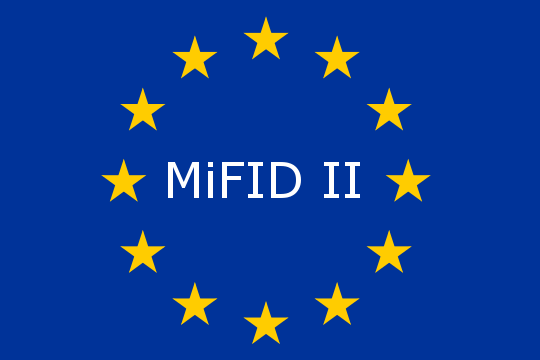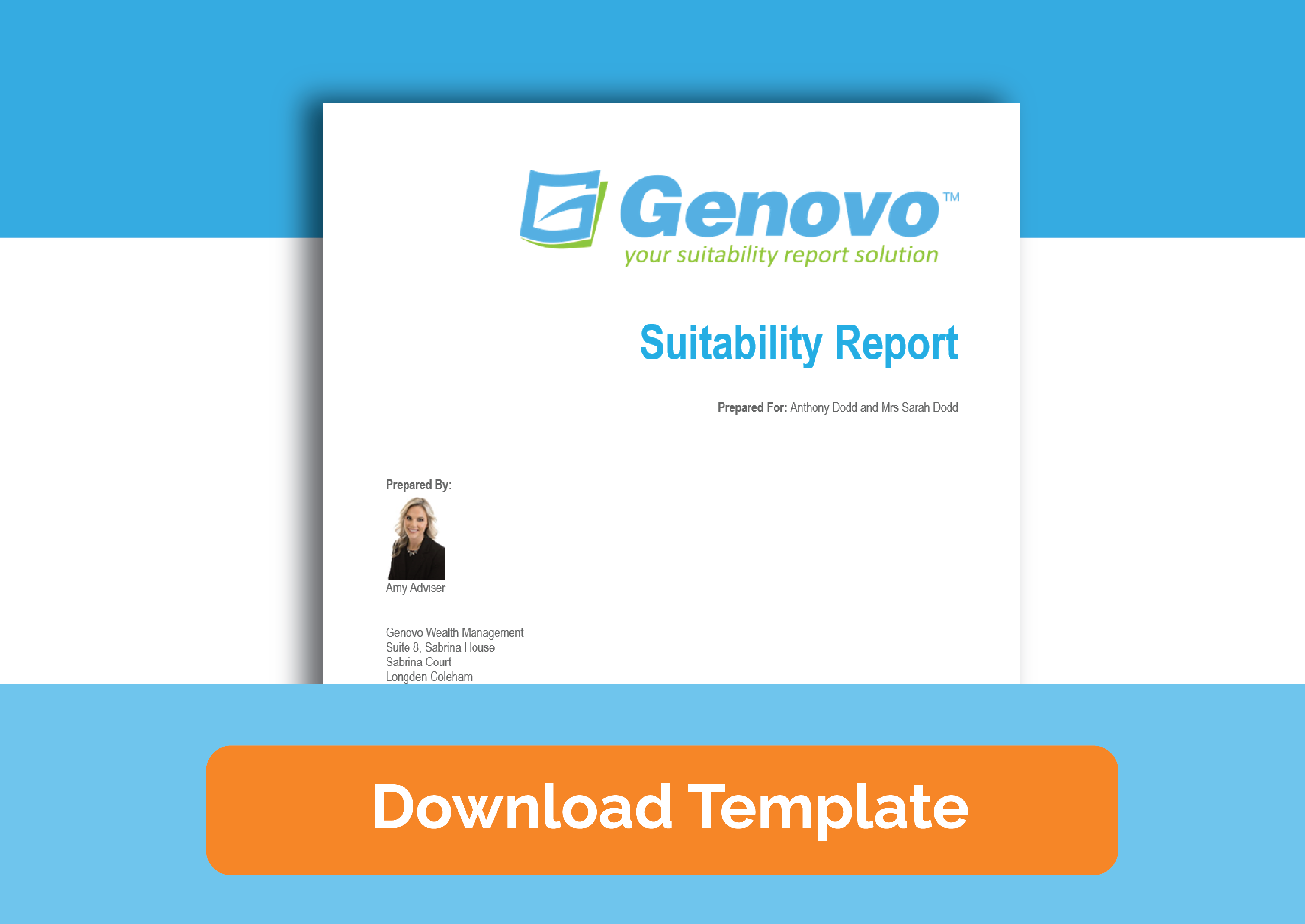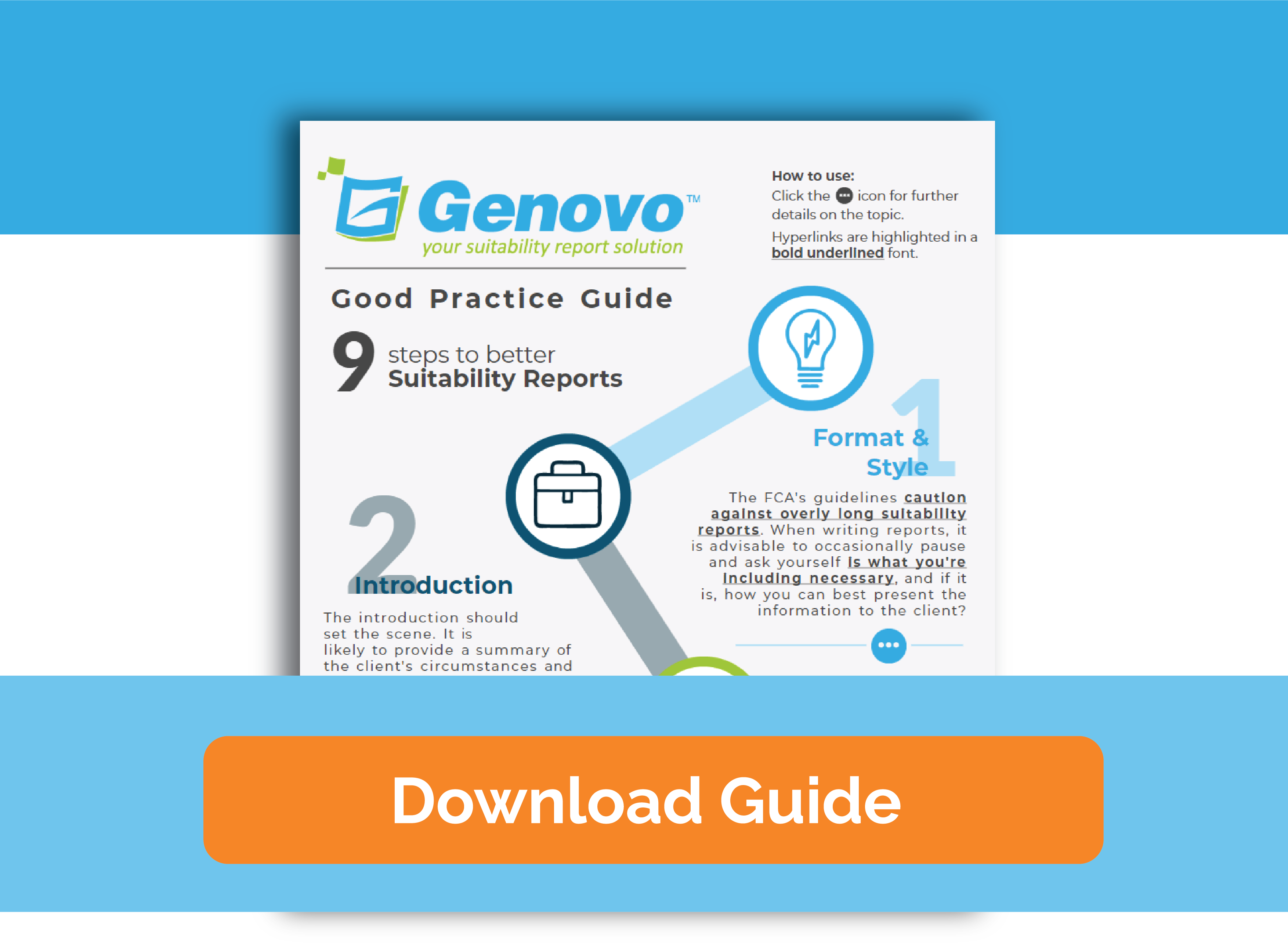
Genovo – Our response to MiFID II
Ed Evans
MiFID II will come into effect from 3 January 2018 and if you haven’t already done so, you will need to identify where changes are needed within your own company and have a clear plan for implementing them ahead of the deadline to ensure MiFID II compliance.
For our part, we’ve reviewed the new legislation and picked out those aspects that could have a direct impact on suitability reports. This blog aims to highlight those aspects, and explain how Genovo can help you address them.
Timing
The rules governing the timing of suitability reports is currently covered under COBS 9.4.4. It states that a firm must provide the suitability report to the client:
- in the case of a life policy, before the contract is concluded unless the necessary information is provided orally or immediate cover is necessary; or
- in the case of a personal pension scheme or stakeholder pension scheme, where the rules on cancellation (COBS 15) require notification of the right to cancel, no later than the fourteenth day after the contract is concluded; or
- in any other case, when or as soon as possible after the transaction is effected or executed.
Under MiFID II, a suitability report will have to be issued prior to the conclusion of the recommended transaction.
Our response
We’re not sure anyone is 100% clear exactly what this means, but it sounds to us like it means before the application is submitted. At Genovo, we have always advocated putting the client at the centre of the report writing process and providing them with a reader-friendly and engaging suitability report prior to any business being transacted. In our opinion this has a number of benefits including:
- Aids the client’s understanding of your recommendations and puts them in the best position to make an informed decision prior to any applications being submitted.
- Encourages dialogue and questions at outset, which in turn reduces the likelihood of future complaints.
- Delivers customer service and demonstrates your commitment to Treating Customers Fairly.
- Enhances your brand and professionalism, and provides you with a competitive advantage.
From day 1, the Genovo suitability reports have been designed so they can be used either pre or post sale. Our reports are deliberately written in the present perfect tense (e.g. “I have recommended…..”) to cover both scenarios; and it’s really easy to edit and create a revised report in Genovo in the event that you need to change your recommendations following the initial client meeting.
Legal Entity Identifiers
MiFID II will require certain legal entities to obtain a Legal Entity Identifier (LEI) before they can enter into a transaction for certain financial instruments. This is likely to affect your corporate and trust clients in particular.
Our Response
As a financial planning company you will need to identify which of your clients will need an LEI, and you may even need to help them obtain one. Clearly this is more of a procedural rather than a suitability report-related matter.
However, given that Genovo caters for corporate and trust clients, we have added a couple of new selectable advice reasons to the Disadvantages & Tax Implications step in the New Investment Recommendation Section, as well as the Next Steps step in the Important Information section so you can expressly highlight to a client within their suitability report the need to, and cost of obtaining an LEI should you wish to do so.
Periodic assessment of suitability
A financial planning company’s obligations in terms of assessing suitability is currently covered in COBS 9.2. These existing suitability provisions will remain in place in an amended COBS 9 and will apply to firms advising on, or managing portfolios in relation to non-MiFID products.
However, MiFID II will place enhanced requirements on investment firms to review and report on suitability on a continuing basis. Firms will be expected to draw a retail client’s attention to whether they should seek a periodic review of their investments’ suitability and if required, confirm the nature of the review service they intend to provide. It will also introduce a new requirement for companies to explicitly confirm in writing the ongoing suitability of an existing investment each time a review is undertaken, and that such reviews should be at least annually.
Our Response
Most, if not all, financial planning companies will already agree with their clients whether ongoing reviews are required as part of the ongoing service they provide to them; and in all likelihood if they are required, they will be provided at least annually.
Suitability reports created within Genovo already include a section entitled Reviews and Ongoing Service as standard. And it is here, that the client is reminded of the importance of periodic reviews.
Your circumstances and needs may change in the future, so it is important we regularly review your financial arrangements to ensure their continued suitability and that you remain on target to achieve your objectives…..”
You can also customise Genovo to reflect your own service proposition; and confirm in each report the nature of the service that has been agreed with a particular client within the Service Propositions & Reviews step of the Important Information section.
Regarding the need to explicitly confirm in writing the ongoing suitability of an existing investment each time a review is undertaken, it is already possible within Genovo to create a shortened review report for an existing client in which you can review / confirm their:
- objectives,
- risk profile, and
- the continued suitability of each investment in their investment portfolio.
If you’d like to learn more about how you can write a review report for an existing client in Genovo, check out this user tip blog we wrote a little time ago.
As an aside to MiFID, we are currently looking at ways to enhance our review report, so if you do have any comments or suggestions now would be an ideal time to feed these back to the team.
Costs and charges disclosure
MiFID II will place more onus on investment firms to be transparent in respect to all of the costs associated with an investment; and moving forward a client will need to be provided with a full breakdown of charges associated with an investment both ex-ante (i.e. pre-sale) and ex-post (i.e. periodically post-sale). Moreover, the charges will need to be aggregated and expressed as a monetary amount and a percentage.
Our Response
As a result of these developments, changes may need to be made to your client agreements and disclosure documents; and it is inevitable that changes will be made to product and platform KIIDs to provide greater transparency of costs and charges – and rightly so.
However, the FCA has ruled out creating a cost disclosure template; and of those supposedly “MiFID II-friendly” cost and charges disclosure templates that I’ve seen doing the rounds, I personally found them to be extremely confusing!
Even Megan Butler, executive director of supervision for the investment wholesale and specialists division at the FCA, was recently quoted as saying that the disclosure regime under the new Mifid II requirements was “probably not perfect”.
At Genovo, we have always promoted a clear and transparent approach to the disclosure of charges. Hence why within the Genovo app, it is currently possible to provide the one-off and ongoing charges of a plan under the headings of:
- Product Charge
- Platform Charge
- Adviser Service Charge
- Underlying Investment Charge
- Other Charges
- Total Charge
We have deliberately designed all of these charges fields as multi-line free text boxes to allow the user to provide as much or as little information as they wish about the charges affecting the plan, and in whatever format they prefer. However, we have always advocated and encouraged the inclusion of £ & pence, as well as a %, in line with FCA best practice.
In terms of the report output, these fields are then summarised in an eye-catching, reader-friendly table, under a heading of Plan Charges in the review and recommendation sections of the report, as well as the Plan Comparison section (in the event of replacement business).
With the exception of any one-off charges relating to a particular event that may be incurred during the period of investment (e.g a fund switching charge) or at the end of the investment period (e.g an early encashment charge) which a user of Genovo is prompted to cover off (amongst other things) in the Disadvantages and Tax Implications steps during the process of building a report, we feel the Plan Charges step of Genovo already caters for the clear and transparent disclosure of all costs and charges required under MiFID II. Moreover, I would suggest that based on what I’ve seen to date, the way the plan charges are presented in the review and recommendation sections of Genovo is far clearer and more client-friendly.
Having said this, we do plan to make some changes to the Charges steps in Genovo prior to 3 Jan 2018. However, these changes will be evolutionary rather than revolutionary. In the first instance we will be introducing a new Transaction Charge field – it is anticipated that any “incidental charges” as referred to under MiFID II would be covered off in the existing Other Charges field.
We will also be making some changes to the Total Charge field. Firstly we’ll be changing the name to Total Aggregated Charge, as well as changing the field type to a pure number field. Moving forward users will be prompted to confirm the total charge of a plan as a % in this field, and the Genovo app. will then automatically work out the total charge as a £ (based on the fund value of the plan) and insert this figure in the charges table included in the report.
Switching investments
MiFID II places a requirement on firms to collect information on both the client’s existing investments and the recommended new investments when recommending a switch of investments. The firm should then analyse the costs and benefits of switching investments so that it can reasonably demonstrate to the client the benefits of switching are greater than the costs.
Our Response
To be honest this doesn’t sound any different to what the FCA would already expect from you when undertaking replacement business.
When you recommend the transfer, switch, encashment etc of an existing investment within Genovo, you are automatically prompted to compare the existing and the new plan you are recommending in terms of:
- ongoing charges;
- reduction in yield;
- performance of the underlying investment strategy; and
- death benefits (in the case of pensions).
And this information is summarised in a format that is easy for the client to understand and digest in a dedicated Plan Comparison section.
Client categorisation
Under MiFID II all clients will need to be categorised as:
- Retail,
- Professional, or
- Eligible counterparty
Our Response
Within Genovo it is already possible to confirm the category of a client within the Client Classification step of the Important Information section.
However, it is worth pointing out that there is certainly no suggestion that you must confirm the client’s categorisation in your suitability report. In fact, in our experiences, this is the kind of text that some of our users have removed from their template (using the Report Content Manager) in a bid to keep their reports as short and succinct as possible.
Conclusion
Clearly MiFID II has far reaching implications for financial planning companies of all sizes – what we’ve discussed here is just the tip of the iceberg. However, it does appear that a lot of the new rules on suitability, at least, basically formalise guidance that already exists; and companies who are already providing a high quality client-centric service are likely to be less affected by the changes.
To find out more about MiFID II and the impact it could have on your company, we’d suggest you check out the dedicated MiFID page on the FCA website. FT Adviser have also put together a useful Guide to MiFID II Implementation.

